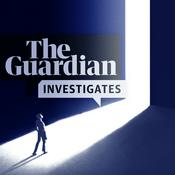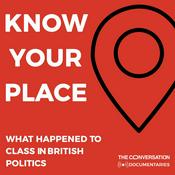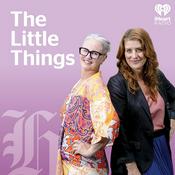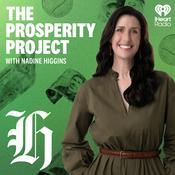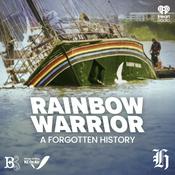1231 episodes
Royal reckoning: Inside Andrew Mountbatten-Windsor’s public humiliation after arrest
20/2/2026 | 20 mins.UK police have arrested Andrew Mountbatten-Windsor on suspicion of committing misconduct in public office.
It comes after allegations the former prince shared confidential information with former financier and sex offender Jeffrey Epstein when he was a UK trade envoy, a role he held from 2001 to 2011.
Police searched his Sandringham home and former Royal Lodge residence.
He has since been released, after about 12 hours of questioning.
Today on The Front Page, Royal correspondent Gavin Grey joins us from Windsor to break down the latest on this disgraced royal.
Follow The Front Page on iHeartRadio, Apple Podcasts, Spotify or wherever you get your podcasts.
You can read more about this and other stories in the New Zealand Herald, online at nzherald.co.nz, or tune in to news bulletins across the NZME network.
Host: Chelsea Daniels
Editor/Producer: Richard Martin
Producer: Jane Yee
See omnystudio.com/listener for privacy information.Auckland's housing plan is changing again. What will happen over your fence now?
19/2/2026 | 20 mins.A step forward for housing capacity in our largest city – or a step back on housing affordability?
Auckland’s explosive debate over density planning has come to a head, with Housing Minister Chris Bishop making a U-turn on capacity limits.
It’s all got to do with the controversial “PC120” plan.... which has been scaled back slightly to allow for 1.6 million homes to be built, as opposed to 2 million.
But, what does that actually mean? And why have the rules to pack more homes into Auckland sparked such a fierce debate?
Today on The Front Page, journalist Simon Wilson is with us to unpack the updated plans, the protests, and what it means for your backyard.
Follow The Front Page on iHeartRadio, Apple Podcasts, Spotify or wherever you get your podcasts.
You can read more about this and other stories in the New Zealand Herald, online at nzherald.co.nz, or tune in to news bulletins across the NZME network.
Host: Chelsea Daniels
Editor/Producer: Richard Martin
Producer: Jane Yee
See omnystudio.com/listener for privacy information.- What does New Zealand and David Hasselhoff have in common?
The answer, is TV producer Alex Breingan.
He has been hit with a raft of Serious Fraud Office charges... and is the same guy whose production company, Stripe Studios, owed the Baywatch star money.
Turns out, he might owe a lot more people, a lot more.
Today on The Front Page, NZ Herald Media Insider Shayne Currie is with us to take us through the rise, and falls, of this high-flying, Kiwi producer.
Follow The Front Page on iHeartRadio, Apple Podcasts, Spotify or wherever you get your podcasts.
You can read more about this and other stories in the New Zealand Herald, online at nzherald.co.nz, or tune in to news bulletins across the NZME network.
Host: Chelsea Daniels
Editor/Producer: Richard Martin
Producer: Jane Yee
See omnystudio.com/listener for privacy information. - Fixing the leaks, not just buying bigger mops.
That’s the theme of the National Infrastructure Plan released today.
It looks at 17 sectors covering central government, local authorities, and commercially regulated utilities.
The 30-year outline sets out how New Zealand can improve the way it plans, funds, maintains, and delivers infrastructure... and guess what, it turns out we don’t do it very well.
Each year we invest just over $20 billion on infrastructure, yet on a dollar-for-dollar basis we achieve less than many of our international peers.
Today on The Front Page, New Zealand Infrastructure Commission Chief Executive Geoff Cooper will take us through this mammoth report.
Follow The Front Page on iHeartRadio, Apple Podcasts, Spotify or wherever you get your podcasts.
You can read more about this and other stories in the New Zealand Herald, online at nzherald.co.nz, or tune in to news bulletins across the NZME network.
Host: Chelsea Daniels
Editor/Producer: Richard Martin
Producer: Jane Yee
See omnystudio.com/listener for privacy information. - Eden Park’s gearing up for more gigs, more goals, and more growth.
The number of concerts allowed each year at Auckland’s Eden Park stadium will almost triple under new rules announced today by the Government.
Under the new settings, the stadium will be allowed to host up to 12 large and 20 medium-sized concerts a year - without the need for resource consent.
We’ll speak to Sir Graham Lowe about the first Eden Park hosting the New Zealand's first-ever State of Origin match next year. But first on The Front Page, former Auckland Mayor Phil Goff is with us to chat about the wider changes to the stadium, and whether its neighbours will mind.
Follow The Front Page on iHeartRadio, Apple Podcasts, Spotify or wherever you get your podcasts.
You can read more about this and other stories in the New Zealand Herald, online at nzherald.co.nz, or tune in to news bulletins across the NZME network.
Host: Chelsea Daniels
Editor/Producer: Richard Martin
Producer: Jane Yee
See omnystudio.com/listener for privacy information.
More News podcasts
Trending News podcasts
About The Front Page
Go beyond the headlines with The Front Page, the New Zealand Herald’s daily news podcast. Each weekday Chelsea Daniels unpacks the stories shaping Aotearoa, from what’s happening in our own backyard to global events shaping our future.
Every episode we speak to leaders, experts, reporters, and those living the story, so you get the full picture.
Subscribe now so you never miss an episode.
Podcast websiteListen to The Front Page, The Rest Is Politics and many other podcasts from around the world with the radio.net app
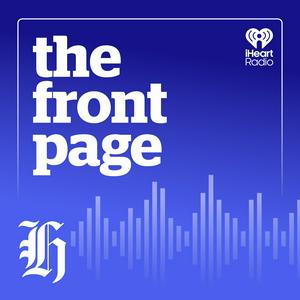
Get the free radio.net app
- Stations and podcasts to bookmark
- Stream via Wi-Fi or Bluetooth
- Supports Carplay & Android Auto
- Many other app features
Get the free radio.net app
- Stations and podcasts to bookmark
- Stream via Wi-Fi or Bluetooth
- Supports Carplay & Android Auto
- Many other app features


The Front Page
Scan code,
download the app,
start listening.
download the app,
start listening.









